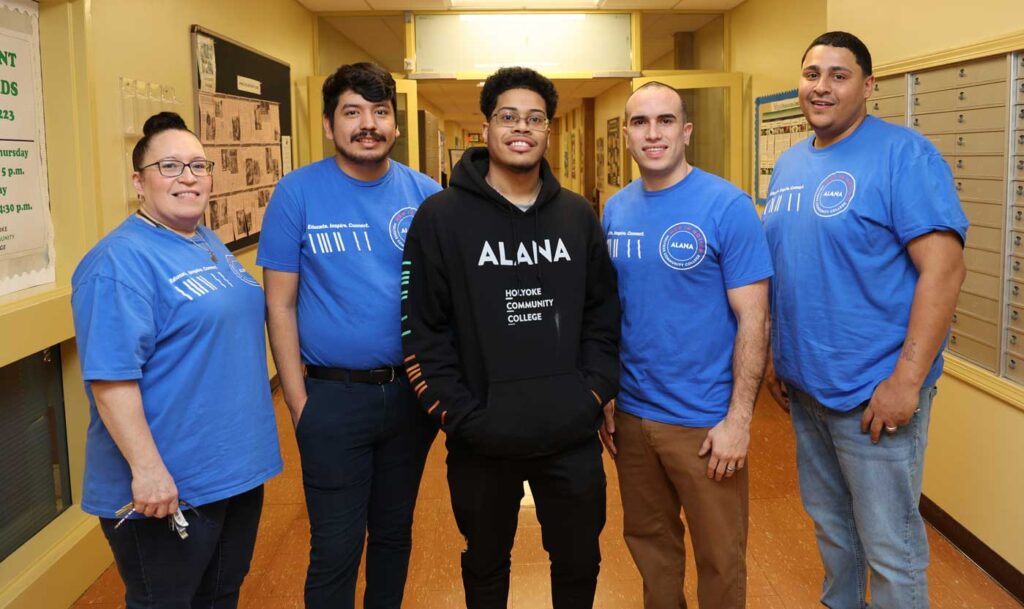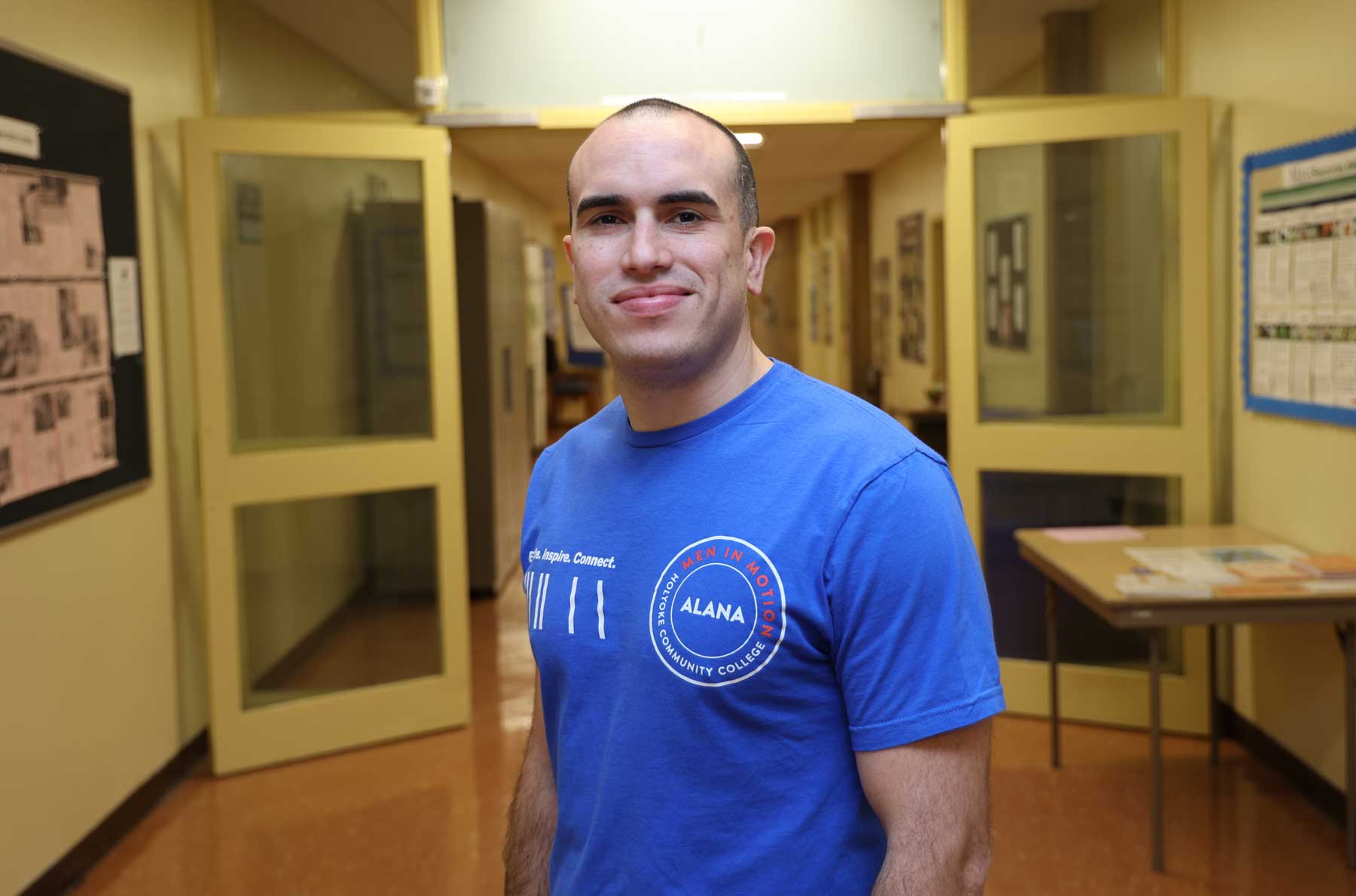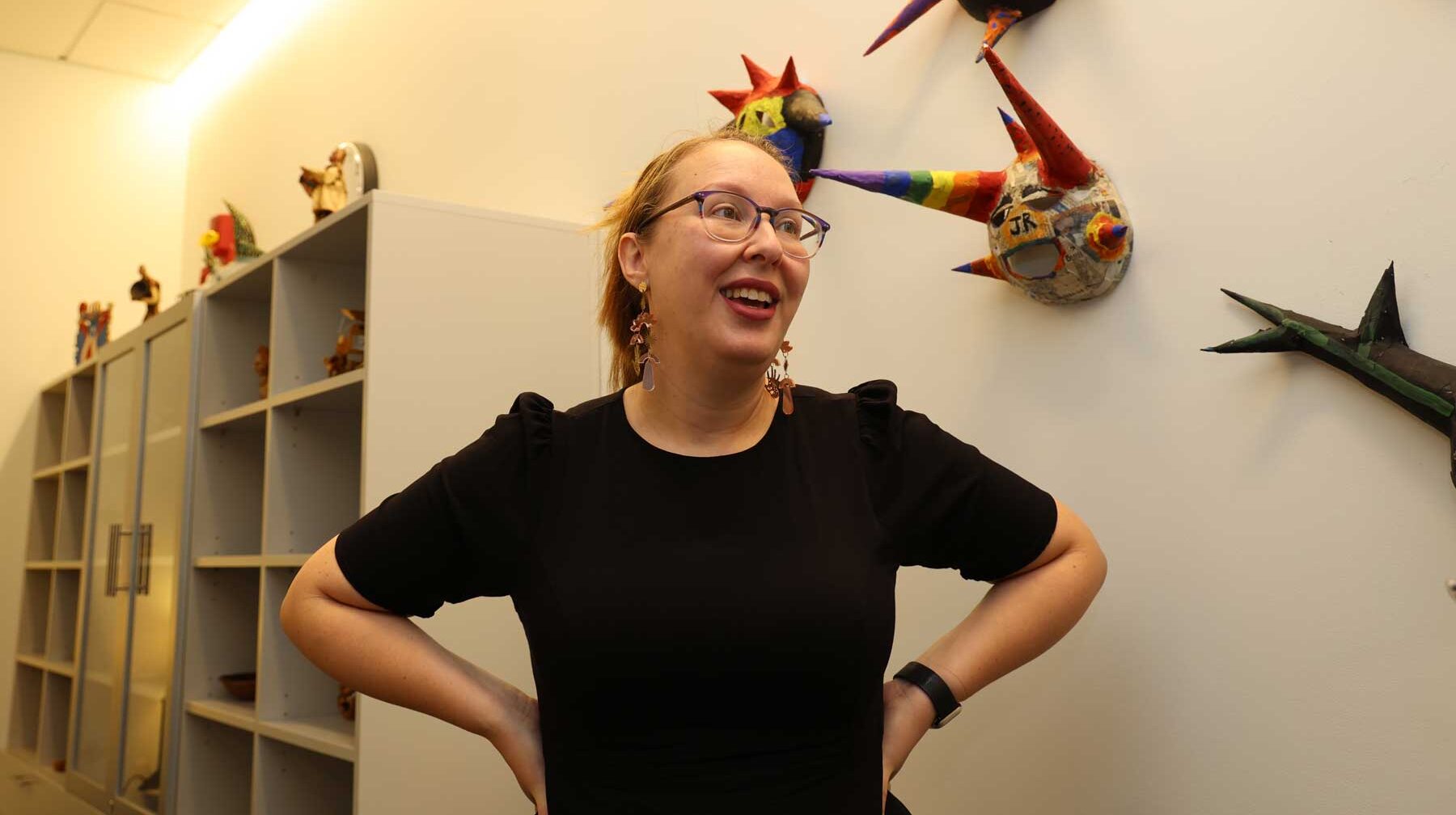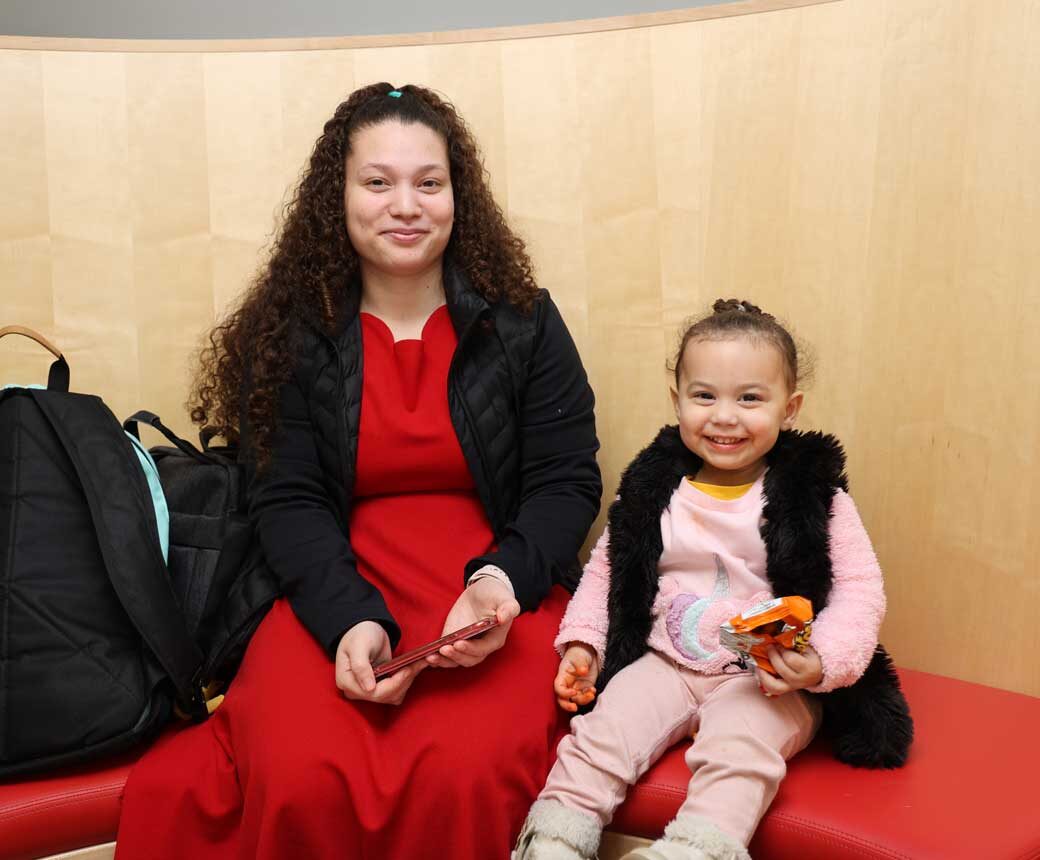Saúl Caban brings new energy to ‘dream job’ at HCC.
“I am the product of effective mentoring,” he says. “I know what it can do for an individual’s life, especially as a man of color, as a Puerto Rican, a Latino man.”
Saúl Caban, 30, sits behind an old desk in his new office, still mostly unfurnished, a photo of his newborn son, Aidan, on the windowsill. Never at a loss for words, he talks with seemingly endless energy about his job as the first full-time director of ALANA Men in Motion, an HCC student-mentorship program for young men of color, ALANA being an acronym for “African-American, Latino, Asian, and Native American.”
“Mentoring can mean different things, right? It really just depends on the student, what their needs are, what their goals are,” he says. “At the core, ALANA is meant to establish a relationship, a go-to resource, to give men of color someone they can rely on and talk to who can help them make the necessary connections on their academic journey, so their goals and aspirations become a reality.”
ALANA has existed for about 15 years. Until recently, though, it had operated under the umbrella of the Center for Academic Program Support – the college’s tutoring centers – with part-time mentors and a part-time coordinator.
Driven by the college’s equity initiatives, a grant from the newly established Massachusetts SUCCESS Fund, and ALANA’s positive results, HCC administrators decided to expand the program. With Caban’s hiring in September 2022, ALANA became a stand-alone program with four dedicated, full-time staff members: Caban, an administrative assistant, and two professional mentors.
“Our target enrollment for the year is 200 students,” says Caban. That would represent a roughly six-fold increase over the three dozen or so students ALANA used to serve each year.
“It’s a big jump,” he says, “but I’m super excited about that. I feel like we’re in a great position now to really reimagine the way we support men of color.”
Caban came to HCC in 2019 as a learning specialist – essentially an academic and career counselor – for TRIO Student Support Services, a federally funded program that works with low-income and first-generation students, and those living with documented disabilities.
“It’s all tied to supporting students from disadvantaged backgrounds and marginalized communities,” says Caban. “The students who need us most.”

When he saw the posting for the ALANA position, he jumped at it. “It was like, oh my god, this is a dream job,” he says. “This is my dream job.”
Born in Aguadilla, Puerto Rico, Caban migrated to Holyoke with his family as a child and grew up in the Flats, “the back streets,” he says, “in a very impoverished neighborhood.” Fourth of six children, he was first in his family to graduate from high school and first to go to college.
As a sophomore at Westfield State University, he discovered the TRIO program there, and it changed his life. “What it did for me, working with my advisor in TRIO, I really felt like I belonged in college,” he says. “They made me feel like a superstar.”
During his junior and senior years, he worked for TRIO as a peer mentor: “I knew as I was nearing college graduation that I wanted to work in higher education and be a change agent, supporting students to help them move forward with their dreams.”
After earning his bachelor’s degree in social work, Caban was hired as youth career services coordinator for MassHire Holyoke and later returned to Westfield State as a career counselor and employer relations specialist. Last year, he completed his master’s degree in public administration at Westfield.
Despite his connections to WSU, Caban says he always believed he would work for HCC one day.
“I am a product of effective mentoring,” he says again, “but more importantly, I’m a product of the Holyoke community.”
And he continues to stay involved in it. Outside of work, Caban serves as a board member for the Latino Scholarship Fund of Western Massachusetts and volunteers as a basketball coach and community activist for the Holyoke Safe Neighborhood Initiative.
Ultimately, he says, faith and family (wife Maritza, and son Aidan, now 3) are the forces that drive his commitment.
“As a man of color,” he says. “I want to be an example to my son, because I know what unique challenges we face, such as financial barriers, which I know will be very different for my son, because I worked so hard to put myself in a better position.”
“I don’t take that for granted, though,” he goes on. “I know that at the end of the day my son will be a Puerto Rican man growing up in our city, in our community, and that can come with its own challenges.”






